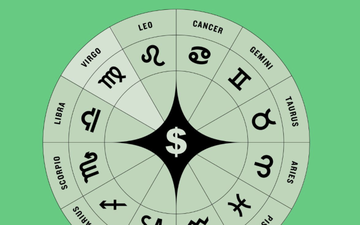
If we do not know what is healthy, it is difficult to identify what is unhealthy.
Many of us are unaware of what makes a healthy - or normal - family.
Here are six common characteristics of healthy families and, why not, of different social groups:
1. Respecting healthy emotional and physical boundaries: Children and other family members have privacy, and all members should understand and respect this. In healthy families, parents do most of the emotional work with their children by modeling empathy, self-control, and appropriate behaviors in response to emotions or stress. The role of children is to learn.
2. Seeing each family member as an individual with an opinion: Everyone is allowed to have an opinion, and all family members should respect and allow those opinions to be expressed, even if the adults make the final decision. In families where there is little room for different opinions, it is common for children to grow up not knowing themselves. When you are always taught how and what to think, it is normal not to know how to do this for yourself.
3. Establishing consistent, fair, and age-appropriate rules and expectations: All families have rules, and it's normal for different families to have different rules, but rules that are not consistent or not age-appropriate create an environment of confusion and chaos.
4. Plotësimi i nevojave të secilit person në mënyrë të përshtatshme: Të gjithë anëtarët janë të shqetësuar për shëndetin dhe mirëqenien e të tjerëve, por në një mënyrë të përshtatshme për moshën. Prindërit ofrojnë kujdes emocional për fëmijët; jo anasjelltas.
5. Të gjithë anëtarët e familjes ndihen të sigurt: Fëmijët në një familje të shëndetshme ndihen të sigurt për të mësuar, duke u rritur dhe duke bërë gabime. Ata kanë një kuptim të shëndoshë të gabimeve dhe e kuptojnë se ato nuk do të sfidojnë apo kërcënojnë sigurinë e tyre. Dashuria është e pakushtëzuar.
6. Të presësh gabime dhe t’i falësh ato në mënyrë të shëndetshme: Anëtarët e familjes e kuptojnë se ne të gjithë jemi njerëz që mësojmë dhe rritemi. Konflikti trajtohet në një mënyrë të përshtatshme dhe të sigurt, me të rriturit që modelojnë mënyra të përshtatshme për të menaxhuar mosmarrëveshjet. Këto familje eksplorojnë gabimet për t'i kuptuar dhe përmirësuar, në vend që të turpërojnë njerëzit për to. Fëmijët e kuptojnë se do të ndëshkohen për sjellje të papranueshme, por e dinë gjithashtu se do të falen për gabimet dhe nuk do t’u përmenden për vitet në vijim.
Take a moment. Think about your family history and see if you remember any of the above characteristics. Often, people who have experienced family trauma will not have these experiences. This list might just give you an idea - if none of these happened in your home, it could be a sign that things were somewhat unhealthy.
If you feel that most of the 6 points have occurred in your family, except for one, this does not mean that the family is not healthy. Many things also depend on individual family dynamics, such as culture, generation and other factors.





